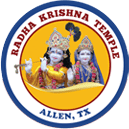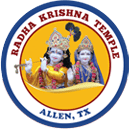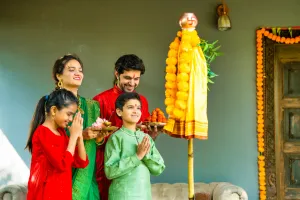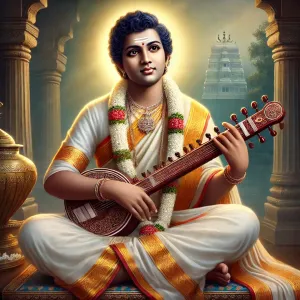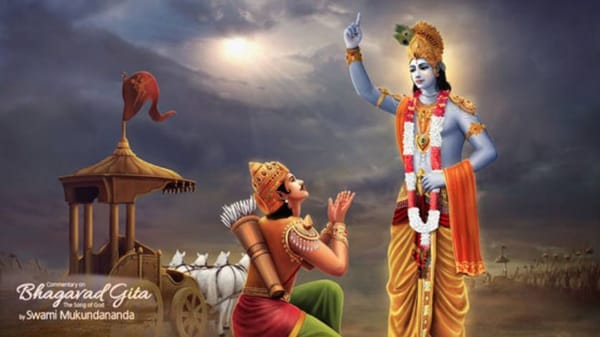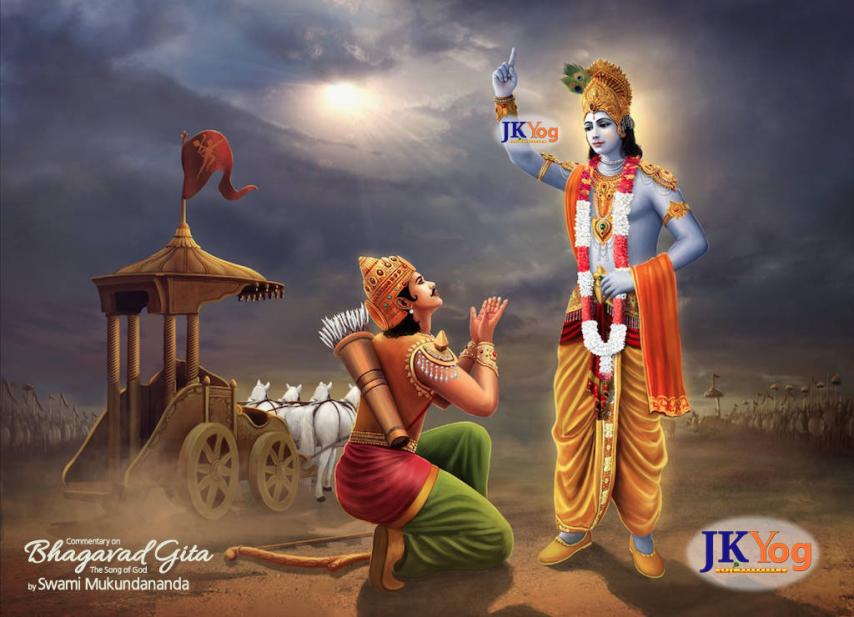
Bhagavad Gita, the song of the Supreme Lord, is a treasure chest of divine knowledge, and universal in applicability. Bhagavad Gita is one of the Prasthānatraya (the three foundational scriptures for understanding Vedic thought,) the other two being Upaniṣhads, the Brahma Sūtras.
सर्वोपनिषदो गावो दोग्धा गोपाल नन्दनः |
पार्थो वत्सः सुधीर् भोक्ता दुग्धं गीतामृतं महत् ||
Sarvopaniṣado gāvo dogdhā gopāla-nandanaḥ |
Pārtho vatsaḥ su-dhīr bhoktā dugdhaṁ gītāmṛtaṁ mahat ||
(Gita Mahatyam, 6)
“The Bhagavad Gita, the essence of all the Upaniṣads, is a cow, and Shree Krishna, the cowherd and the son of Nanda, milks this cow. Like a calf, Arjuna and the pure devotees are to drink the nectarean milk of Bhagavad Gita.”
Unable to deal with the immediate problem at hand, Arjun approached Shree Krishna for a palliative to overcome the anguish he was experiencing. On the Shukla Ekadashi of Margashirsha month, Shree Krishna did not just advise him on his immediate problem, but gave a profound discourse on the philosophy of life. Hence, the purpose of the Bhagavad Gita, above everything else, is to impart Brahma Vidyā, the science of God-realization.
The Bhagavad Gita is not content with providing a lofty philosophical understanding; it also describes clear-cut techniques for implementing its spiritual precepts for everyday life. These techniques of applying the science of spirituality in our lives are termed “Yog.” Hence, the Bhagavad Gita is also called “Yog Śhāstra,” the scripture that teaches the practice of Yog.
Inexperienced spiritual practitioners often separate spirituality from temporal life; some look on beatitude as something to be attained in the hereafter. But the Bhagavad Gita makes no such distinction, and aims at the consecration of every aspect of human life in this world itself. Thus, all its eighteen chapters are designated as different types of Yog because they deal with methodologies for the application of spiritual knowledge to practical life.
Therefore a ceremonial reading of Bhagavad Gita, or even a part of it confers abundant strength, peace, and joy!
We welcome you to join the Gita Jayanti celebrations at the Radha Krishna Temple on 29th November at 6:30 pm and on 2nd December at 11:30 pm, and encourage you to participate in:
- Gita Pārāyan and Lecture Sessions
- Special Shree Krishna Pooja and āarti
- Children competitions in Gita shloka recitation, speech, and essay writing
For more details, visit Bhagavad Gita Jayanti 2017 at Radha Krishna Temple.
